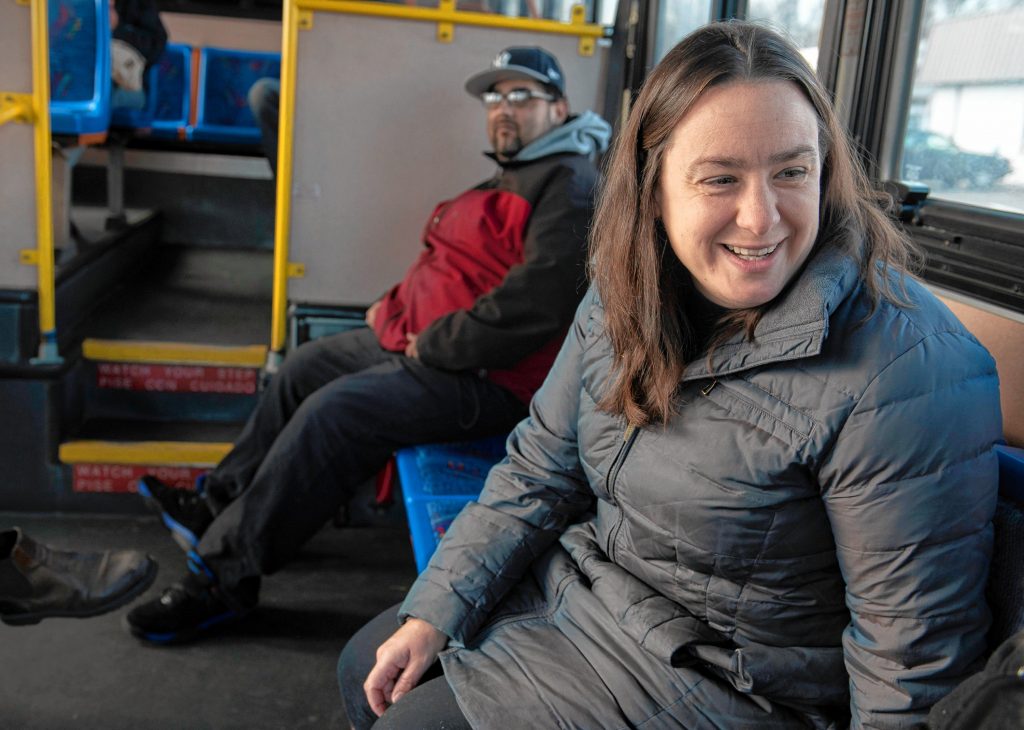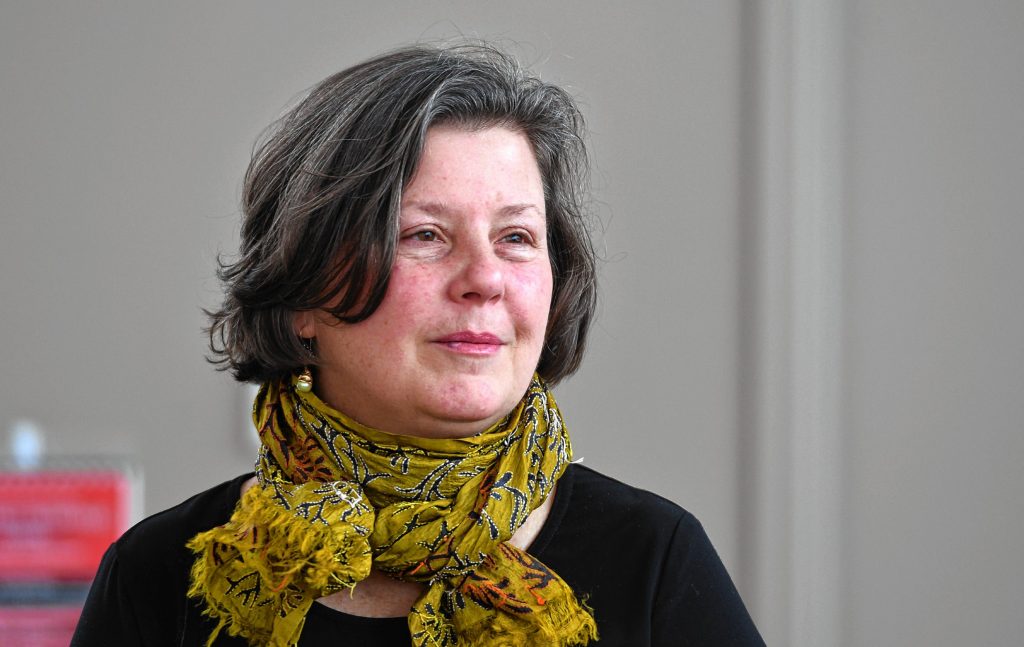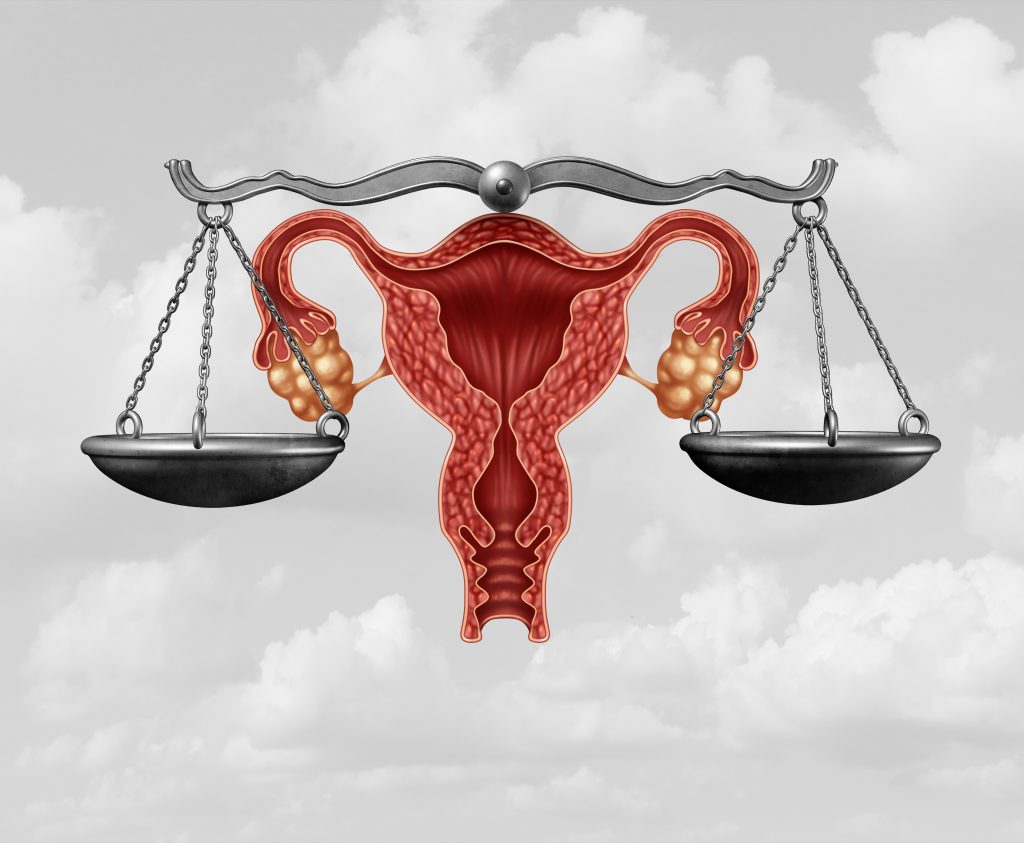As the constitutional right to an abortion is threatened in various states and in the country as a whole, the Massachusetts Legislature may soon consider an expansion of abortion rights in the state.
Massachusetts lacks a program to financially support individuals who can’t afford an abortion. It also lags behind some of its neighbors in upholding the right to an abortion in specific instances — requiring parental or judicial consent for those under 18 who seek an abortion.
That could change thanks to the ROE Act (H.3320 and S.1209), currently being reviewed by the state Legislature’s Judiciary Committee and co-sponsored by 22 state Senators and 91 state Representatives — a majority of both houses. The committee is expected to release a report on the bill by Feb. 5.
In addition to ending consent requirements for teens and including abortion care as part of the state’s Healthy Start financial support program, the ROE Act would allow for women to have abortions after 24 weeks in cases of diagnosed lethal fetal anomalies or to protect a patient’s mental or physical health and eliminate antiquated, no-longer-enforced language in state law that formerly penalized doctors who perform abortions.
“I think it’s very clear that opponents of legal abortion have been chipping away at access for a very long time,” said Tara Kumaraswami, an obstetrics and gynecology professor at the University of Massachusetts Medical School. She is also the residency program director for the obstetrics and gynecology program at UMass Memorial Healthcare.
“Whether the Supreme Court overturns (Roe v. Wade) or guts its protections, that very possibility underscores the importance of the state stepping up to ensure that access is available to all,” she said. “Massachusetts has been a leader in health care access and equity and civil rights and passing the ROE Act would be a common sense next step in carrying on that tradition.”
Democratic leadership in both houses, however, have not yet signed on to the legislation, and Republican Gov. Charlie Baker has previously expressed skepticism he would sign it.
Meanwhile, many states are moving in the opposite direction, emboldened by Trump appointee Brett Kavanaugh’s confirmation to the Supreme Court.
That confirmation, held October 6, 2018, had almost immediate implications for abortion rights. With the court swinging towards an expected 5-4 conservative majority opposed to abortion rights, some states with Republican-controlled legislatures did not waste any time in trying to pass laws intended to directly challenge Roe v. Wade.
Just a week after Kavanaugh’s confirmation, Indiana sought the help of a higher court to reverse a federal judge’s June 2017 block on a law that would make it harder for women under 18 to get an abortion without their parents’ knowledge. An appeals court later upheld the lower-court decision in August 2019 and the law was blocked from going into effect.
A bill introduced in early 2019 by members of the Texas House of Representatives would have made abortions illegal in the state, and could have made abortions punishable by death for women and physicians who perform them. However, the bill never made it out of that state’s House Committee on Judiciary and Civil Jurisprudence.
Alabama’s governor signed into law a ban on abortions in nearly all cases, including in cases of rape or incest, only for it to be blocked by a federal judge in October 2019. Georgia, Kentucky, Louisiana, Missouri, Mississippi, and Ohio have passed so-called heartbeat bills that ban abortions once a fetal heartbeat is detected, which is around six or eight weeks of pregnancy — but none of these laws has gone into effect due to pending litigation.
Last week, over 200 members of Congress called on the Supreme Court to reconsider and possibly overturn Roe v. Wade, “if appropriate,” in an amicus brief filed on behalf of the defendant in June Medical Services LLC v. Gee, a case the Supreme Court agreed in October to hear. That case — on the docket for March — will consider the legality of a 2014 Louisiana law requiring doctors that perform abortions in the state to have admitting privileges at a nearby hospital.
‘I did not tell my parents’
In 2010, Rachel sought out an abortion at a Planned Parenthood clinic in Springfield. (The Advocate has agreed to not use Rachel’s real name.)
During her early 20s, she learned of her pregnancy very early on and she had already decided that she had no intention of having a child, she said. To this day, like so many women who have had an abortion, she said, it is not easy to talk about. Rachel’s parents have still never learned she had an abortion.
“I was not a teen and I did not tell my parents and I didn’t want to upset anyone,” Rachel said. “It’s still stigmatized, but I was not worried about getting kicked out of the house.”
These days, she said, abortion is still a topic to be avoided.
“It’s not something you want to upset someone with who has different views,” she said.
Rachel supports the ROE Act and said teens in Massachusetts should not be forced to tell their parents when they are seeking an abortion, and that the judicial process presents a significant roadblock forcing teens to divulge personal information to judges who are not health experts. She said she worries for teens that delay their abortion care by deciding to wait until they turn 18.
According to a study by Brigham and Women’s Hospital and other medical institutions, out of a sample population of nearly 2,000 minors who had an abortion between 2010 and 2016, 77 percent of abortions were obtained with parental consent and 23 percent using the judicial process. For those who received parental consent, their abortion occurred a mean of 8.6 days after initial contact, compared to 14.8 days for minor with the judicial process.
“There could be real reasons why a teen might not tell their parents and I don’t see why they should have to,” Rachel said.
Finances should also not be a barrier for women no matter their age, Rachel said. For teens on their parent’s insurance who do not want to tell them about their pregnancy, the ROE Act will provide them with financial assistance through the Healthy Start program.
The Healthy Start program already exists in the state, and it provides health insurance to low-income, uninsured pregnant women in order to improve access to pregnancy-related care. The ROE Act would include abortion care in the Healthy Start program.
During college, a friend of Rachel’s struggled to come up with the $300 she needed for an abortion and needed a ride from a friend to the clinic.
“Whether or not you have money should not decide this for you,” she said. “Having a child is insanely expensive and the option should not come down to who has $300 on a certain day. And if you can’t have that abortion (due to financial reasons), there should be more financial assistance out there.”
A failed ballot effort
Attempts to increase access to abortion through the ROE Act in Massachusetts are in contrast to the many states signing laws that attempt to outright ban abortion or seriously curtail its availability. Yet there have also been efforts in Massachusetts to make getting an abortion harder for some women. A recent petition — which failed to get enough signatures to get on the 2020 ballot — would have sought to end taxpayer funded abortion.
The Massachusetts Alliance to Stop Taxpayer Funded Abortion’s petition-drive gained 58,559 signatures out of a required minimum of 80,239, which is equal to 3 percent of the turnout for the previous governor’s election. The organization’s chairman, Thomas Harvey, did not respond to requests for comment. In its third attempt in five years, the group has failed to get voters to weigh in on the issue.
Andrew Beckwith, president of the Massachusetts Family Institute (MFI), were advocates for the signature-gathering drive for the anti-abortion petition. According to the organization’s website, MFI “is dedicated to strengthening the family and affirming the Judeo-Christian values upon which it is based.”
“We were encouraged that once again they gathered over 50,000 certified signatures and it shows a lot of people in Massachusetts — wherever they stand on abortion — don’t think it’s proper for public funds to end lives of unborn children.”
Beckwith referred to the ROE Act as “radical anti-life, anti-parent” and as the “infanticide bill.” He said the bill would remove requirements to protect a baby’s life if they are born in a failed abortion.
“It would remove the requirement to save the life of an unborn,” Beckwith said.
Removing parental consent
The phone rings at Planned Parenthood’s health center in Boston. On the line is a teen faced with an incredibly complicated decision to make: she is pregnant but she wants to get an abortion.
There is a trained team dedicated to fielding these types of calls at the clinic. These “patient navigators” inform the teenager of all her options, including completing the pregnancy and becoming a mother, having the child and giving it up for adoption, or having an abortion. When the teen asks the clinician about abortion, she finds out about the requirements under Massachusetts state law.
She has two options: she can have her parents sign a consent form in order to allow her to have the abortion, or she has to go before a judge who will determine whether or not she can have the procedure.
The teen tells the clinician she will go to a neighboring state, either New York or Vermont, that does not have such requirements and get an abortion there instead. The girl hangs up the phone.
“We had a patient navigator, in one week, take calls from two different people who — once they were told about this court process — just decided to leave the state altogether,” said Trisha Wajda, vice president of external affairs for the Planned Parenthood Advocacy Fund of Massachusetts.
Massachusetts is one of 21 states that require parental consent for a minor under 18 to have an abortion while 11 states require parental notification only, such as New Hampshire. Twelve states and the District of Columbia have laws that do not require parental involvement.
Out of 18,256 abortions documented by clinics and hospitals in Massachusetts during 2018, there were 334 abortions provided to minors under 18, or about two percent of all abortions last year, according to the Massachusetts Department of Health.
Fear of verbal or physical retribution from parents might lead a teen to decide to go before a judge for approval, Wajda said. Planned Parenthood’s team of patient navigators help teens throughout this complicated and legal process by referring pro bono lawyers, transportation, and connecting them to abortion funds for financial support.
Wajda said this process, however, can make medical care for a teen more difficult.
“Nothing can change the fact that the process delays care for some young people,” she said. “They feel the process is so stressful they forgo it altogether and travel to another state.”
State Rep. Lindsay Sabadosa, D-Northampton, said she has heard of young women from Massachusetts traveling to Washington, D.C., Maryland, New Mexico, and Colorado to seek abortions to avoid the judicial review process. For some young women who do not have healthy relationships with their parents, the judicial review process is an unjust barrier, Sabadosa said.
“We are asking the most vulnerable people in our society to jump through more hoops when, in reality, (abortion) is basic health care,” said Sabadosa, a co-sponsor of the bill.
In instances of abuse in the home, Sabadosa said, physicians at abortion clinics are mandated reporters to law enforcement whereas judges do not have that capacity. They also lack the training that physicians have in recognizing signs of domestic abuse, Sabadosa noted.
“Judges are not allowed to be reporters in the same sense,” Sabadosa said. “Judges are not mandated reporters and a physician is. Physicians talk to young people to understand what is going on in their life … Physicians will ask a lot of questions, getting to know if they are vaping, sexually active, about their home life, and other concerns.”
Complications late in a pregnancy
Massachusetts allows abortions up to 24 weeks. After that, abortions are only allowed in cases where the woman’s life or health is at risk.
Kumaraswami, the assistant professor of obstetrics and gynecology at UMass Medical School, said it’s rare for patients to seek an abortion after 24 weeks.
Most women seeking abortions are in their first trimester and less than one percent seek one after 20 weeks, she said. According to the state Department of Health’s figures, there were 12,129 abortions within the first eight weeks of pregnancy or two-thirds of all abortions in 2018.
It’s in extreme cases, when women are dealing with complications late in their pregnancy, when difficult situations can arise. Even for women who have highly desirable pregnancies, Kumaraswami said, there can be unexpected medical concerns or abnormalities in the late stages.
Anencephaly, a lethal condition in which the brain and bones of the skull do not form completely while the baby is in the womb, might not show in an ultrasound until after 20 weeks, according to Kumaraswami. That leaves a small window of time for women who want a second consultation with medical experts, to seek appointments with specialists, and then decide what to do with their pregnancy, all within the next four weeks.
“It’s difficult to take the feelings they have of a highly desirable pregnancy, and combined with a pregnancy that is going to be lethal, and having to decide in a fairly quick fashion what they would like to do with their pregnancy,” Kumaraswami said. The ROE Act “is going to help a fairly select group of women, but for those women (with lethal anomalies), it can be life-altering.”
Affording an abortion
Abortion should be considered a common procedure, writes Katie Watson in her book, Scarlet A: The Ethics, Law & Politics of Ordinary Abortion, published in January 2018. The rate of abortions in the United States surprised even Watson when she began teaching bioethics, medical humanities, and constitutional law at the Northwestern University Feiberg School of Medicine.
Approximately three out of 10 American women who are currently age 45 or older have had one or more abortions. In her book, Watson wrote that abortion rates are decreasing.
According to the Guttmacher Institute, which supports abortion access, the U.S. abortion rate dropped to 13.5 abortions per 1,000 women aged 15 to 44 in 2017, the lowest recorded rate since 1973 when it became legal. Birth rates similarly declined in almost all states in that period, indicating that fewer people became pregnant.
Even amid declining rates, more women would have access to abortion care in Massachusetts through the state’s Healthy Start program.
The cost of abortion care can be prohibitive, Kumaraswami said. In Massachusetts, there are clinics and hospitals that provide abortion care and their prices vary. In a clinic, it can cost less than $1,000. At a hospital, especially if there are medical complications for patients, abortions can cost upwards of tens of thousands of dollars, according to Kumaraswami.
State Sen. Jo Comerford, D-Northampton, another sponsor of the bill, said a woman’s economic situation should not prevent them from accessing abortion care.
“I believe that reproductive rights are a health care issue and should be universally affordable,” Comerford said. “Abortion is a medical procedure between a patient and a doctor and it’s appropriate for the state to maintain the ability for women’s ability to choose.”
Massachusetts is one of 15 states where abortions are covered by Medicaid through state taxpayer money. Federal funds are barred from funding abortions — except to save the life of the woman or in cases of incest or rape — by the Hyde Amendment, which was established in 1976.
In 1981, however, the state’s Supreme Judicial Court ruled that women eligible for Medicaid have a constitutionally protected right to an abortion.
“If we believe that reproductive rights should be universal and affordable, then breaking down barriers for people whose barriers are economic has to be part of the equation,” Comerford said.
Luis Fieldman can be reached at lfieldman@valleyadvocate.com.






